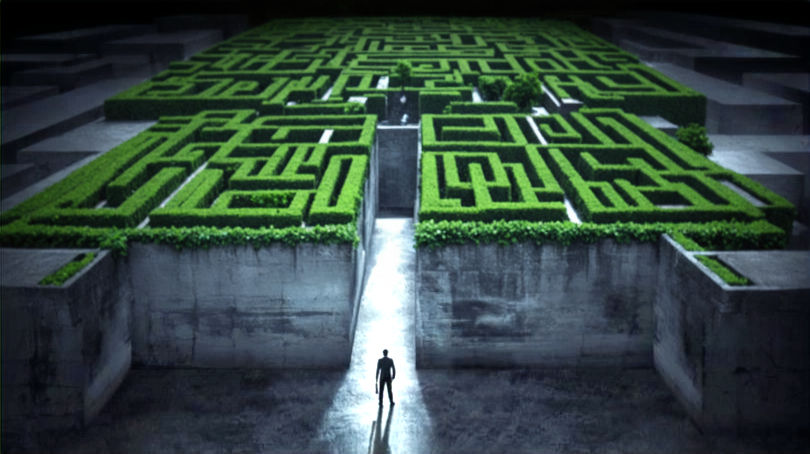Why We Repeat the Past: Understanding Repetition Compulsion in Relationships
- Salena Javdan
- Jul 25, 2025
- 4 min read
Have you ever found yourself in the same painful relationship patterns, even when you know better? Maybe you’ve dated different people who, somehow, make you feel the same way – unseen, unimportant, or emotionally unsafe. Despite your best intentions, you might feel stuck in a loop, wondering: Why do I keep ending up here?
This isn’t just coincidence or poor judgment - it may be something deeper. Psychologists call it repetition compulsion: the unconscious drive to recreate early emotional experiences, especially the unresolved ones, in an attempt to gain control or closure. But instead of healing, we often find ourselves re-wounded.
In this post, we’ll explore the science and psychology behind repetition compulsion, why it’s so common in relationships, and how therapy can help break the cycle – so you can stop reliving the past and start rewriting it!

What Is Repetition Compulsion?
First introduced by Sigmund Freud, repetition compulsion is the unconscious tendency to repeat patterns from earlier in life - particularly unresolved or painful ones - in present-day relationships. Rather than learning from difficult experiences and avoiding them, the mind may recreate them in hopes of achieving mastery or a different outcome. Without conscious awareness of these patterns, they can often perpetuate more pain than healing.
This concept has since evolved in modern psychology. Attachment theory, object relations, and trauma research all support the idea that our early relational experiences shape internal blueprints for how we expect love, closeness, and safety to operate. When these blueprints are distorted by neglect, inconsistency, or abandonment, they often drive us toward the familiar – even when it hurts.
How It Shows Up in Relationships
Repetition compulsion often reveals itself in romantic relationships, though it can show up in friendships and work dynamics as well. You might find yourself continually drawn to partners who are emotionally distant, critical, or unreliable – mirroring dynamics you experienced as a child. Or perhaps you notice a tendency to sabotage healthy relationships because they feel unfamiliar or “too good to be true.”
In essence, the past becomes a script we unknowingly reenact. For example, someone who felt unworthy of love growing up may unconsciously choose partners who reinforce that belief. Even if the relationship causes distress, it feels familiar – and familiarity, to the nervous system, can mistakenly signal safety.
Why Do We Keep Repeating the Past?
From a psychoanalytic perspective, repetition compulsion is often driven by a subconscious desire to “master” a painful situation. We might hope that by recreating the scenario, we can finally achieve a different outcome – be loved by the emotionally unavailable person, earn the approval we never received, or prevent abandonment this time. But because the conditions are often the same, the ending tends to be just as wounding.
Object relations theory also explains this tendency through internalized relationship templates, or introjects. These are mental representations of early caregivers and the roles we took on to maintain connection with them. If we internalized the role of the “fixer,” the “invisible one,” or the “caretaker,” we may unconsciously seek relationships that keep us in that role.
From a trauma-informed lens, repetition can also be explained by dysregulation of the nervous system. When a person’s early environment was unpredictable or threatening, their nervous system becomes wired to anticipate and even seek out chaos or inconsistency. It’s not “rational” – it’s physiological.
How Therapy Helps Break the Cycle!
One of the most powerful aspects of therapy is that it gives you a safe space to step back and look at your patterns with curiosity, not judgment. Often, the first step toward change is simply noticing the ways in which your past might be shaping your present, especially in relationships.
In therapy, you begin to connect the dots between what you’ve experienced and how you tend to respond today. You might uncover beliefs you didn’t even realize you were carrying, like “I’m not worth sticking around for” or “I have to earn love by being perfect.” These beliefs often operate quietly in the background but have a major impact on the kinds of relationships we choose and how we show up in them.
As these patterns become clearer, therapy helps you practice new ways of relating to yourself and to others. Instead of reacting automatically, you build the skills to pause, reflect, and choose a different response. Over time, this creates space for healthier relationships built on trust, respect, and mutual care – rather than fear, anxiety, or repetition of the past.
Change doesn’t happen overnight. But with patience and support, it becomes possible to break free from old cycles and start creating relationships that feel more aligned with who you are and what you truly need.

Final Thoughts
If you find yourself in the same painful cycles, know that you are not broken – you’re human. In fact, your brain may be trying to protect you the only way it knows how: through repetition. The good news is, once you become aware of the pattern, you have the power to interrupt it.
Therapy can help you slow down the replay, recognize your role in the cycle, and build the emotional muscle to choose something different. You’re not destined to repeat the past – you’re capable of creating something new!
_edited_edited.png)


